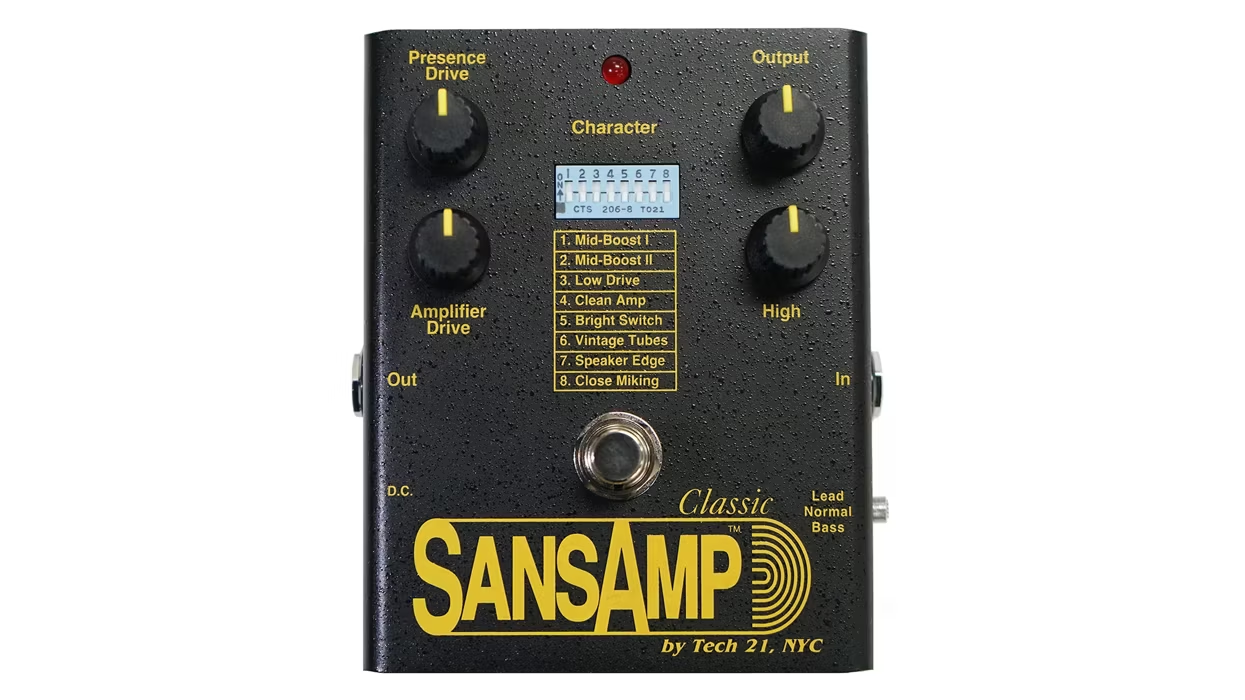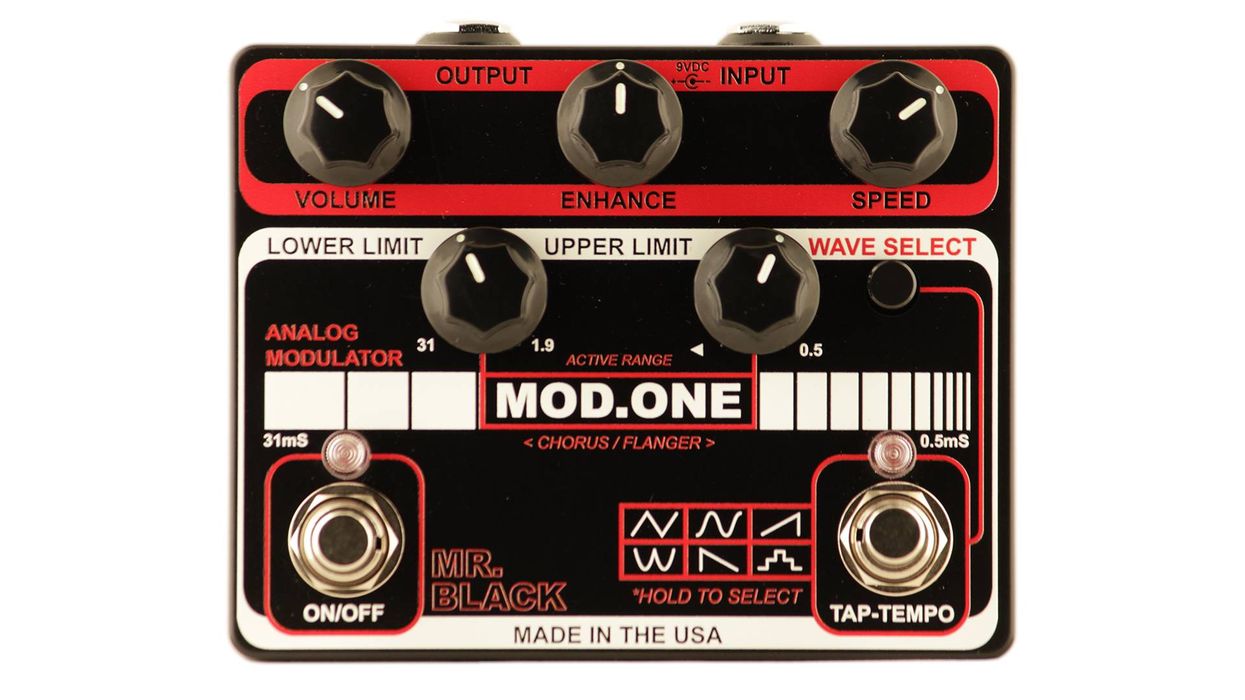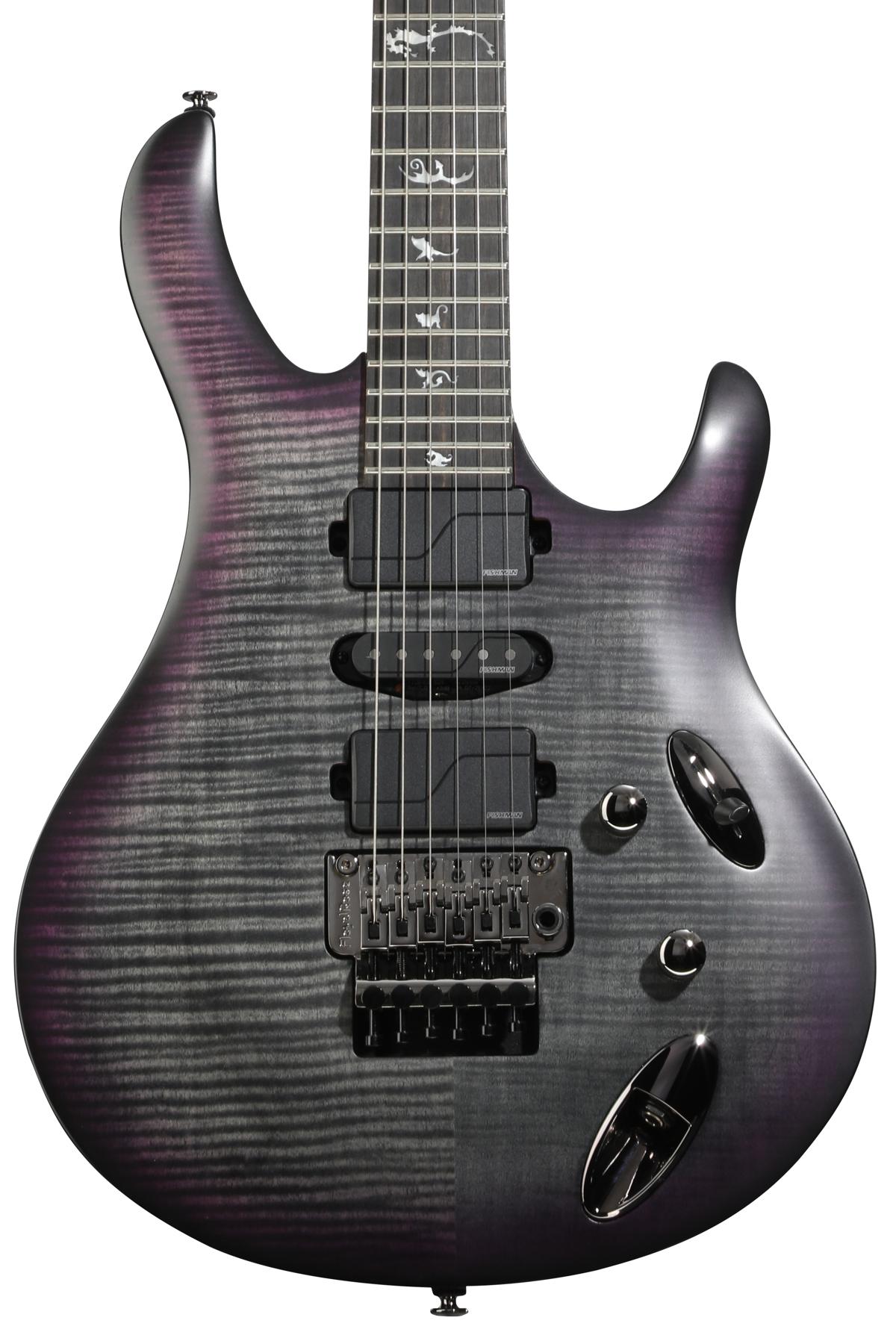How cool is it to have Mike Beigel back in the stompbox game? Over the last 45 years, the M.I.T. grad, signal-processing visionary, and Musitronics (Mu-Tron) co-founder created some of the most imaginative guitar effects ever. Some were hits: His Mu-Tron III is widely considered the best envelope follower ever, and good luck finding a modulation effect as dramatic-sounding as Beigel’s Bi-Phase. Other products foundered on their way to the marketplace, yet they provide further evidence of Beigel’s special genius.
Beigel’s latest venture, Mu-FX, has been reissuing classic Mu-Tron effects with modern updates. Their latest release is a revised Octave Divider, an octave-down effect paired with the Green Ringer ring modulator originally released by Dan Armstrong. (According to Beigel, the original Octave Divider was the first stompbox with two footswitches, which allowed you to toggle between the dual effect and octaver alone.)
Mu Redo
The 21st-century Octave Divider faithfully mimics the original’s sound and functionality, and then some. Some Mu-Tron effects were larger than Latvia, but this one resides in a relatively compact 5.5" x 4" folder-aluminum enclosure. The revised circuitry employs modern surface-mount components, with the footswitches linked via ribbon connector. A detachable 12V adapter (included) replaces the original built-in power supply.
Sonically, the results are straight outta the ’70s. The octave effect tracks well, though it’s strictly monophonic, and it requires clean, careful picking and muting for optimal results. Note that this is an analog effect created via waveform modulation, not a digital transposition. The tone is warm, fat, and a bit synth-like, as opposed to the crisper, more acoustically accurate transpositions of modern pitch-shift pedals. (Usually that’s a plus—you get the mass and depth of the lower octave without latency or high-end clutter that can compete with your dry signal. Just be aware that it sounds nothing like, say, a DigiTech Whammy Pedal or Boss Harmonist. It’s also a lot noisier.) Dedicated controls trim treble from the bass signal and set its level. A “stabilize” switch supposedly optimizes the tracking for plucked strings, though I obtained equally good results regardless of its setting.
Ratings
Pros:
Faithful ’70s sound. Dual and single effects via two footswitches.
Cons:
Some confusing functionality. A bit noisy. Requires 12v power supply (included). Pricy.
Tones:
Ease of Use:
Build:
Value:
Street:
$359.97
Mu-FX Octave Divider
mu-fx.com
It’s Not Easy Being Green
The other half of the equation is the Green Ringer circuit, itself “inspired” by the earlier Ampeg Scrambler. For many years I didn’t get the Ringer. It doesn’t generate the bold, clangorous tones you expect/fear when you hear the words “ring modulator”—it simply distorts a bit while adding a touch of harmonic anarchy. Like many players, I never found the effect sufficiently dramatic.
But at some point I realized that walloping the Ringer with an upstream booster yields far more exciting results. (As illustration, the audio clips embedded in the online version of this article feature the Octave Divider alone, and the effect preceded by either a clean JFET booster or dirty germanium one.) While the octave and ringer effects here have independent volume controls, you can’t get the “slam” effect without an extra booster.
The original Octave Divider’s solo button isolated the octave effect. The new version adds a select toggle, so you can solo either the octave or the ringer. Nice.
The two effects are easy to navigate once you master the knobs. But plan to spend some time getting up to speed, since some functions and labels are confusing. (Example: The tone knob does indeed affect the tone, trimming highs from the bass effect. But the adjacent bass knob regulates level, not tone.)
The Verdict
Mike Beigel’s reimagined Octave Divider is the best kind of vintage reissue: one that adds convenience, modern construction, and meaningful extras without compromising the magic of the original sound, quirks and all. Unlike 40 years ago, we now have many ways to pair fat-sounding octave effects with wild, clangorous distortion, some of which yield more aggressive and dramatic results. Still, it’s great to see this rare but influential effect resurrected in such a classy fashion.








![Rig Rundown: Russian Circles’ Mike Sullivan [2025]](https://www.premierguitar.com/media-library/youtube.jpg?id=62303631&width=1245&height=700&quality=70&coordinates=0%2C0%2C0%2C0)

















